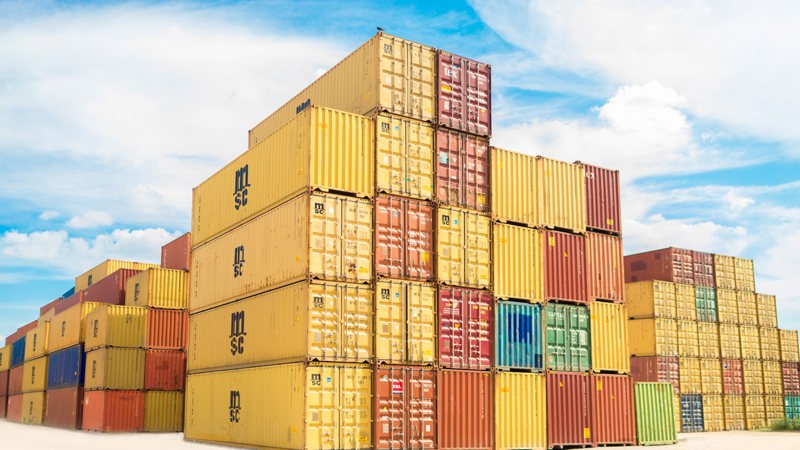
The logistics industry struggles to shake off the image of poorly paid workers scurrying around huge warehouses to load pallets of goods that we consumers demand to be delivered to our doorstep right away.
But an in-depth study by Frontier finds that this is more of a caricature than a rounded picture of a sector that is an indispensable cog in the online economy.
Our report depicts a fast-growing sector that provides a variety of jobs and contributes positively to local communities. Moreover, because it is spread around the UK and offers career opportunities to people with low formal qualifications, logistics has a big part to play in the government’s levelling up agenda.
Well-judged policies to improve transport links, develop workforce skills and streamline planning applications can help the industry to expand further, thereby boosting economic growth and enhancing social outcomes.
The impact on jobs
Logistics is one of the largest industries in the UK, employing 1.25m people. It provides 4.1% of all jobs in the country, compared with 8.7% and 6.6% for manufacturing and construction respectively.
Employment in logistics has nearly doubled since 2012, with job growth second only to the much larger professional, technical and scientific industry category.
Growth was particularly strong during the COVID-19 pandemic. Between 2019 and 2021 the number of people employed in logistics grew by 190,000, an 18% increase. To put this into context, the industry is likely to employ more people than the English NHS by 2023.
The industry’s contribution to the economy has jumped in tandem. It generated around £48bn in Gross Value Added in 2021, doubling from £24bn in 2012.
The regional impact
Our report, prepared for Amazon and supported by Logistics UK, found that logistics sites are dispersed more equally across the UK than other industries. Three in four local authorities in Great Britain host at least 1,000 logistics jobs.
Jobs in the sector are less likely than others to be based in densely populated London. The Midlands is a favoured location, accounting for 21% of all UK logistics employment. But the North West of England, Yorkshire and the Humber, the East of England and the South East of England are each home to around 10% of the industry’s jobs.
In many local areas, logistics is an essential source of employment: the industry accounts for at least 10% of total jobs in around one in ten local authorities in Great Britain. There are now 124 local authorities where logistics provides at least 5% of jobs, up from 58 in 2012.
Significantly, much of the sector’s growth is in areas that are key to the government’s levelling up agenda. Since 2012 the logistics industry has added more jobs in priority-1 areas than in any other part of the UK. In that time, around four in 10 new logistics jobs have been added in high-priority areas, compared to only one in four in other industries.
As a consequence, the industry contributes to reducing regional inequality in employment and pay.
The quality of jobs
We found that logistic jobs, from entry-level to administrative and managerial posts, pay as much as, or more than, other jobs in the same occupational categories. Entry-level jobs, in particular, are relatively well paid: median annual pay is around £22,000, compared with £15,000 across all jobs in the same occupational category.
There is initial evidence, from vacancies posted online, that pay in logistics further increased in 2021 relative to other jobs, driven by changes in pay for drivers of heavy goods vehicles and operators of fork-lift trucks.
What’s more, logistics provides opportunities for people who may not otherwise be in work. An independent survey we commissioned from YouGov indicated that 20% of people currently in logistics were previously unemployed.
And contrary to the perception that logistics jobs are a dead end, the evidence points to career possibilities for workers in entry-level jobs and, more broadly, for those with low levels of formal qualifications. We estimate that in 2021 around 35,000 people were promoted to a managerial role from a non-managerial job, while almost two-thirds of logistics managers do not have a university degree.
The YouGov survey also found that logistics workers are net satisfied across all aspects of their job. This applies not only to pay but to other things, such as their ability to use initiative, job variety and job security. In addition, the survey showed that logistics workers are more satisfied with their current job than with their previous ones.
The impact on the community
We also investigated how logistics sites contribute more broadly to economic growth in their host communities. Our two main findings were:
-
A new site employing around 1,500 people will generate an estimated additional 1,000 jobs in the local area as related service suppliers set up shop and the new hires – many of whom were previously unemployed or earned less – enjoy an increase in their purchasing power.
High logistics density is linked with an estimated 1.3 percentage points of additional GDP per capita growth over the 2012-19 period, relative to areas with lower logistics density and comparable starting conditions. This is equivalent to adding £300 per year per person in the local area.
Conclusion
The logistics industry has increasingly been in the public eye in recent years, especially during the pandemic when online shopping surged. The attention is frequently unfavourable. But criticism of the sector and its impact is not always well grounded. Our in-depth report describes an industry that has a positive effect on local communities and creates a very large number of jobs, including roles that form a potential springboard for upward social mobility .
The logistics industry’s role in reducing regional disparities could be enhanced if all stakeholders cooperate to:
-
Provide skills to ensure that local communities can benefit from the jobs created through logistics investment.
-
Work to maximise the efficiency of logistics hubs, including setting up shared facilities. This would boost productivity in the sector and in the local area.
For local and central government in particular, promoting the growth of logistics and related employment creation could include:
-
Ensuring the availability of physical space with planning permission for logistics sites.
-
Making logistics sites more readily accessible by public transport so that people who do not live nearby and do not own a car can easily take up the jobs created by the industry.
-
Maintaining and expanding ancillary transport infrastructure (road, rail and air).
To maximise the economic and social impact of the industry, initiatives along these lines could usefully focus on increasing logistics activity in areas that have struggled to generate employment.
The sector’s track record in recent years suggests there are a lot more gains to be made, for logistics employers and government planners alike.




